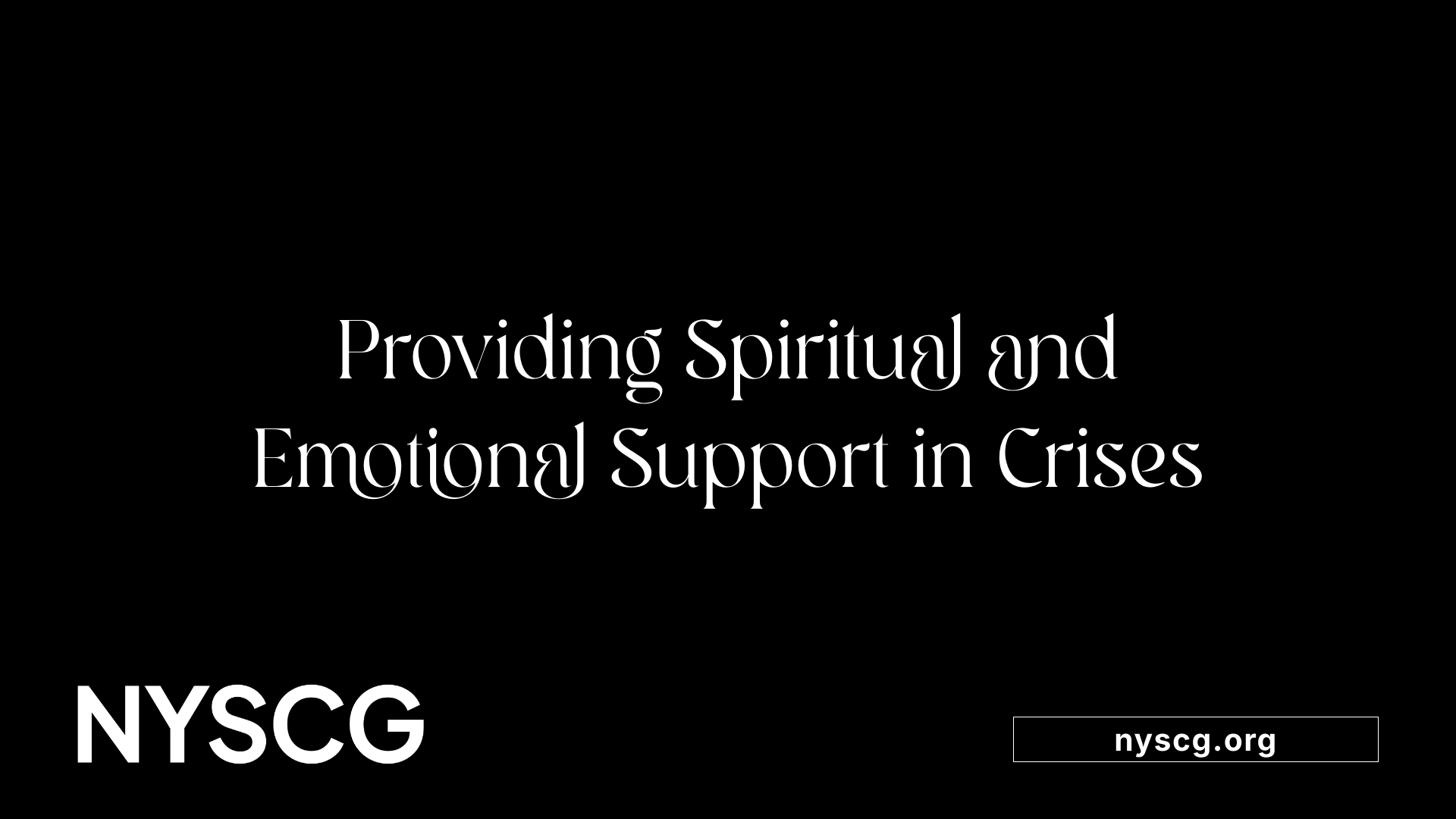Police Chaplain Duties: What to Expect in the Role


Police chaplains serve as crucial support figures within law enforcement agencies, providing spiritual, emotional, and psychological assistance to officers, their families, and the communities they serve. Their duties extend across crisis intervention, community outreach, and supporting departmental well-being, reflecting the multifaceted nature of their role. This article explores what to expect from a police chaplain's duties and responsibilities, highlighting their importance in fostering resilience, trust, and compassion within law enforcement and society.

Police chaplains have a wide range of duties aimed at supporting law enforcement officers, their families, and the community. Their primary focus is providing spiritual, emotional, and mental health support, especially during crises and traumatic events. They assist with death notifications, conduct memorial and funeral services, and offer crisis intervention during emergencies like accidents, natural disasters, and line-of-duty deaths.
Chaplains also work to build trusting relationships between the police and the community through participation in public events, community outreach, and facilitating partnerships with faith-based organizations. In correctional settings, they address the spiritual needs of inmates, help them psychologically adjust, and support reentry programs to reduce recidivism.
Overall, police chaplains serve as compassionate liaisons, offering moral guidance, crisis support, and fostering community trust, all while respecting diversity and maintaining confidentiality.
 Building trust between law enforcement agencies and the communities they serve is a core aspect of police chaplaincy. Chaplains actively participate in community engagement efforts by attending local events, offering spiritual support at community gatherings, and participating in civic ceremonies. These activities help bridge gaps, foster mutual understanding, and promote positive interactions between police and community members.
Building trust between law enforcement agencies and the communities they serve is a core aspect of police chaplaincy. Chaplains actively participate in community engagement efforts by attending local events, offering spiritual support at community gatherings, and participating in civic ceremonies. These activities help bridge gaps, foster mutual understanding, and promote positive interactions between police and community members.
Liaison work is another crucial function performed by police chaplains. They serve as connectors between religious organizations, faith leaders, and law enforcement, facilitating partnerships that enhance community outreach and support services. By working closely with faith-based groups, chaplains help coordinate faith-related programs, provide spiritual guidance, and ensure that diverse religious needs are acknowledged within the department.
Participation in civic events and ceremonies further reinforces the department's commitment to community well-being. Chaplains often officiate at public events such as memorial services, awards ceremonies, and graduations. They may also officiate marriages or conduct memorial services for fallen officers, helping to foster community solidarity and remembrance.
Police chaplains' services encompass a broad spectrum of functions that go beyond individual support. They help improve community relations by fostering an environment of trust and respect. Their presence at community events and their role as liaisons contribute to a more inclusive, understanding, and resilient community.
| Function/Service | Description | Impact |
|---|---|---|
| Community Engagement | Participation in local events, public outreach | Builds trust, fosters positive perceptions |
| Faith Organization Liaison | Facilitates partnerships with religious groups | Promotes inclusivity and mutual support |
| Ceremonial Participation | Officiating at memorials, weddings, ceremonies | Strengthens community bonds and traditions |
| Crisis and Trauma Support | Providing spiritual and emotional support during emergencies | Enhances resilience and healing |
| Officer and Family Support | Helping during critical incidents, death notifications | Supports well-being and reduces stress |
Police chaplains serve as vital links between law enforcement, faith communities, and the broader public. Their ongoing efforts to facilitate communication, provide spiritual care, and participate in community life significantly contribute to building safer, more trusting communities.
Police chaplains occupy a unique and essential role within law enforcement agencies, bridging the spiritual and emotional needs of officers, their families, and the community. By providing crisis support, fostering community relations, and supporting officer well-being, they help build resilient, trusting, and compassionate police departments. Their work extends beyond individual care to strengthening community bonds and promoting a culture of support, respect, and inclusivity. Understanding the scope and expectations of a police chaplain’s role underscores their significance as moral anchors and community connectors, vital to the holistic health of law enforcement and the societies they serve.
All you need is the will to make the world a better place.
New York State chaplain group inc. is a tax deductible organization with a federal tax Id number 92-383-4921